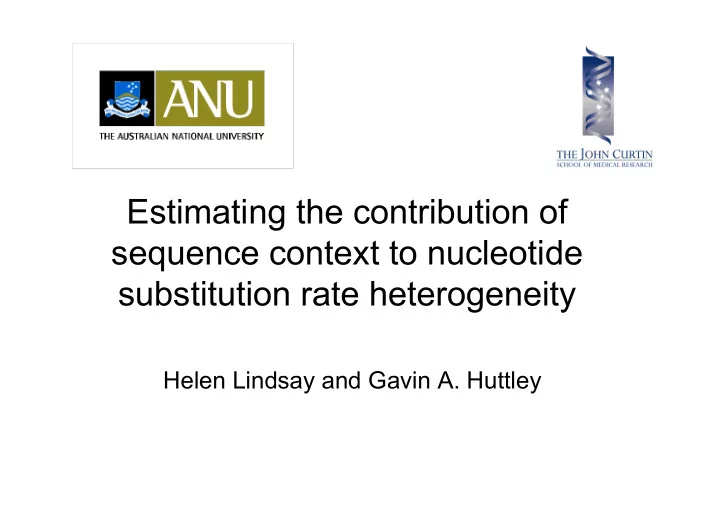

Estimating the contribution of sequence context to nucleotide substitution rate heterogeneity Helen Lindsay and Gavin A. Huttley
The Gamma Model • Yang (1993) used a gamma distribution to model rate variation in α - and β - globin genes • The gamma distribution is often approximated by four equi-probable bins
Gamma rate variation
Improvements on the Gamma model • Allow sites to change rates • Allow clustering of rates • Consider other/multiple rate distributions
What causes substitution rate variation?
What causes substitution rate variation? Natural selection
What causes substitution rate variation? Differential repair Natural selection
Nucleotide properties What causes substitution rate variation? Differential repair Natural selection
AG CG TG (slow) (fast)
Data • 470 alignments, each 50 000 nucleotides long, of introns from human, chimpanzee and macaque one- to-one orthologs. • Sampled from Ensembl version 49.
The baseline model
The CpG model
The Gamma Model
Gamma vs Dinucleotide models
Gamma vs Dinucleotide models
Gamma vs Dinucleotide models
51.07 186.05 40.77 175.52
Accounting for CpG substitutions decreases rate variation
G+C% • Independent sites • Reversible Alignment position (nucleotides) • Compositional variance GA GG rate G+C%(alignment)
Advantages of dinucleotide models • Less likelihood computation • Equivalently parameter-rich • No assumed distribution of rate variation • Can incorporate known mutation biases, for example deamination of methylated cytosine. • Smaller alphabet than amino acids
Acknowledgements Australian National University • Gavin Huttley • Hua Ying University of Singapore • Von Bing Yap
Recommend
More recommend